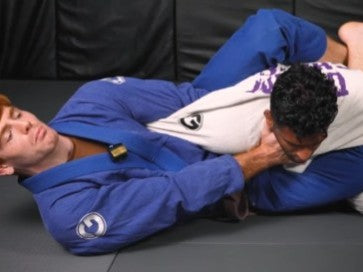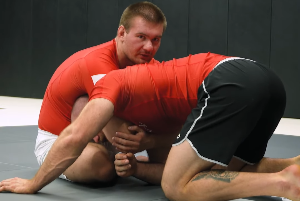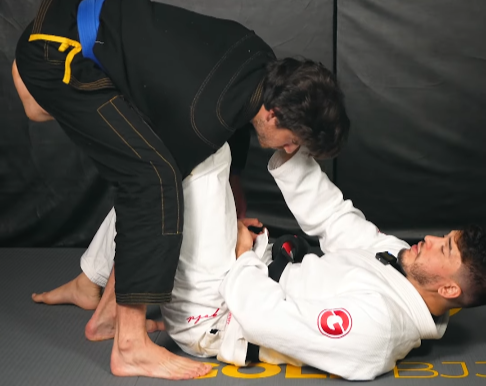Written by Alanna Kate Derrick, certified Personal Trainer and Sports Nutrition Coach.
Published on February 2nd, 2023
As with just about any athletic endeavor, achieving peak performance in Brazilian Jiu Jitsu requires fueling your body effectively for the task at hand. While many general nutritional guidelines, such as eating plenty of fruits and vegetables and focusing on lean proteins, can apply to any sport, we can get a bit more specific regarding nutrition depending on which stage of training you are currently in. In other words, the way you eat during training should be different from the way you eat during competition, as well as from the recovery phase or off-season.
Training and competing in Jiu Jitsu requires both brief energy bursts and sustained muscular endurance. When competing, you'll want to ensure you have the energy for multiple bouts throughout the day without being overly fatigued by the time your final roll comes around. By adequately addressing your body's nutritional needs in the lead-up to a competition, you'll be setting yourself up to be as successful as possible.
Nutrition Strategies for the Training Phase
Fueling your body effectively begins well before you step onto the mat during competition. The training phase is your chance to get your body into peak physical condition. During training, you're likely focusing on perfecting your guards, passes, and other key moves, as well as improving overall physical strength and flexibility. To build and support your muscles, protein is the key macronutrient your diet should center on in the training phase. Animal products are great sources of protein, along with legumes, chia seeds, and soy products, if you follow a vegetarian or vegan regime.
Fat is important in this stage as well, as it supports your organs, helps your body better absorb vitamins, minerals, and other key nutrients, and stores energy for use throughout the day. To keep your diet healthy, focus on healthier, unsaturated fats, like from nuts, eggs, avocados, and olive oil, as opposed to unhealthy saturated and trans fats that are found in many processed foods. Eating a diet that is higher in protein and fat with minimal carbohydrates can help you maintain or lose weight so that you can achieve your target weight class for competition.
In addition to supporting your training efforts, a key goal of nutrition during training is to test out various strategies for competition. This will give you the chance to experiment with different fueling combinations to determine which will work best for you. Take this time to fine-tune what you eat before you roll so that you'll know exactly what will make you feel the best and minimize gastrointestinal distress on competition day.
Fueling with Food During Jiu Jitsu Competition
With the big day finally on the horizon, you'll need to tweak your nutritional strategy to ensure sustained, easily accessible energy throughout the competition. You may have heard of carb-loading, a common strategy among endurance athletes, like marathon runners, in which they consume large amounts of carbohydrates in the days leading up to an event. In fact, many marathons host pasta dinners the night before the race to assist runners in achieving this goal.
While you don't necessarily need to go to that extent for a Jiu Jitsu competition, it is still smart to increase your carbohydrate intake for a few days before. Although your body can break down protein and fat for energy, carbs provide a much more efficient energy source, so you'll want to ensure your body's stores of carbohydrates are full. Healthy carbohydrate sources include oats, whole grains, lentils, sweet potatoes, and brown rice, to name a few. To avoid massive fluctuations in water weight, which could impact your weight class eligibility, it is best to steer clear of more processed carbs like white bread in favor of more nutrient-dense sources like those listed above.
Competition is not the time to introduce anything new to your diet that you didn't already test during training. The last thing you want is for gastrointestinal upset to interfere with your ability to compete. You've worked hard to get to this point, so don't jeopardize those efforts with unfamiliar foods.
Rest, Rehabilitation, and the Off-Season
Once you have completed your Jiu Jitsu competition, you can relax a bit with your dietary strategies. Immediately following the competition, temporarily shift your focus to anti-inflammatory foods to help your muscles recover from the strain of competition. Tomatoes, leafy greens, nuts, fatty fish, and healthy fats can all help to reduce inflammation. You'll also want to incorporate lean proteins to help your muscles recover and rebuild.
It is perfectly fine to reward yourself for your hard work during the off-season with some foods that you may have avoided when trying to make weight. However, you don't want to go overboard and cause major weight fluctuations, as it will only make it more difficult for you to get back to competition weight when you resume training once again. The key here is moderation. While the occasional treat won't break your diet and destroy your health, it is important to still aim to eat mostly healthy foods in the off-season.
Don't Neglect Hydration
No matter which stage of training you are currently in, hydration is always essential, as your body won't function as effectively and efficiently when it is dehydrated. Plain water is the best choice for hydration purposes, though sports drinks with electrolytes can be beneficial when you are actively training. Your body loses vitamins and minerals as you sweat, and electrolytes can replenish them quickly while also keeping you hydrated during and after workouts.
Supplementation Strategies for Jiu Jitsu
When it comes to nutritional supplements, they should be used exactly as their name suggests: as a supplement to a healthy diet. While supplements can enhance your nutritional goals, they are not designed as a countermeasure for poor dietary choices. Here at Gold BJJ, we offer a range of supplements to support your Jiu Jitsu goals, includingPreRoll andPostRoll for before and after training sessions,Joint Jitsu to support joint health, andMat Muscle Protein to promote muscle growth.



